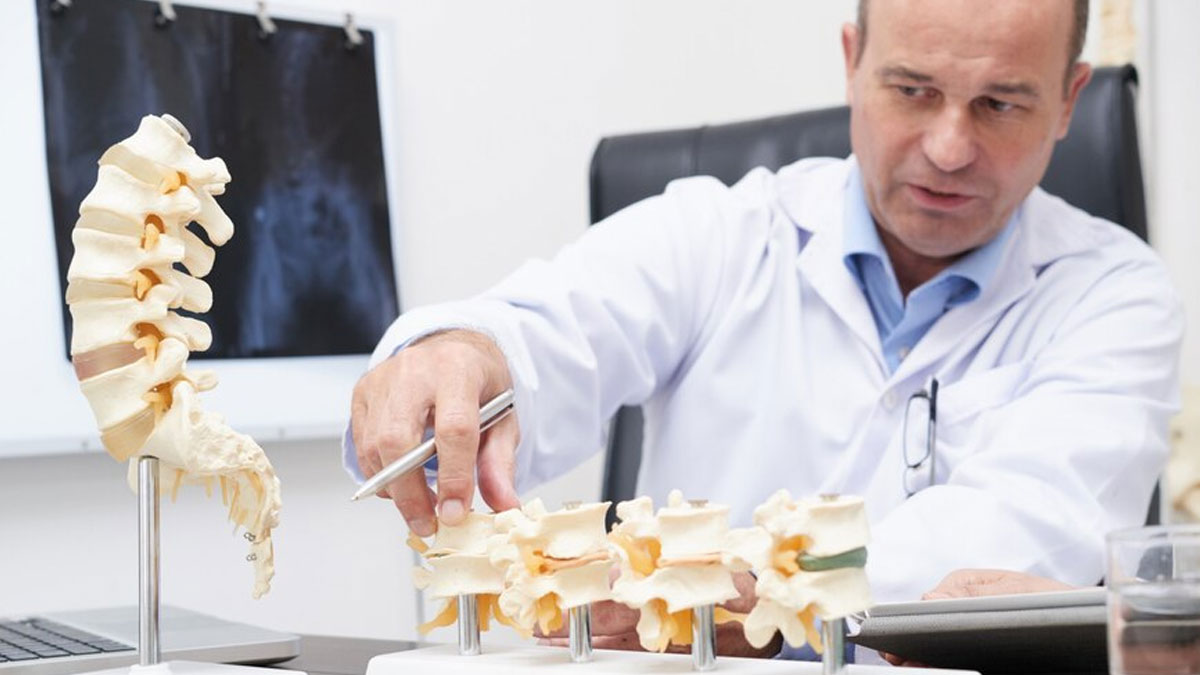
Dealing with back pain or discomfort is something many of us have experienced at some point. Whether it's a dull ache after a long day at work or a sharp twinge when bending over, we often turn to rest, over-the-counter pain relievers, or physical therapy to find relief. But what happens when these remedies no longer work, and the pain starts to interfere with your ability to enjoy life? If you’ve found yourself asking, “Is it time to consider surgery?” you’re not alone. We spoke to Dr Veerendra Mudnoor, MBBS, MS (Ortho), FIJR, FIAS. Joint replacement and Arthroscopy surgeon, Apollo Spectra Hospital, Hyderabad, who shared his insights on when surgery may be the right option and how to recognise the signs that it's time to take that step.
Table of Content:-

“Spine surgery is an intervention that is advised by physicians for patients with spine disorders. The spine comprises the vertebrae, discs, nerves, and muscles; collectively, the components allow overall movement and support bodily activities,” said Dr Mudnoor.
Most of the time, spine surgery is performed only when non-surgical options are not effective. non-surgical options, such as physical therapy strengthen muscles and improve flexibility. Additionally, medications like pain relievers, muscle relaxants, and injections, such as epidural steroids help in reducing inflammation.
If you find your symptoms worsening or interfering with your ability to function, it may be crucial to consult a specialist to determine if surgery is necessary for improving your overall well-being.
Which Symptoms Indicate the Need for Spinal Surgery?
Understanding the signs and symptoms that could indicate the need for spine surgery can help in making an informed decision. Dr Mudnoor listed some of the common signs as follows:
Chronic Pain

This could be persistent pain unresponsive to conservative treatment, such as physical therapy or medication. Common locations include the back, neck, or limbs due to conditions, such as herniated discs, spinal stenosis, or degenerative disc disease. In case the pain has remained constant for months despite various forms of treatment, surgery may indeed be an option.
Nerve Compression Symptoms
Amongst various disorders, herniated discs can compress the spinal nerves and cause symptoms like numbness, tingling, or weakness in arms and legs. Surgical intervention could be an option if the more prominent symptoms are limiting daily activities and have not improved with non-surgical treatments to relieve nerve pressure.
Loss of Function
Difficulty walking, balancing, or coordinating can be indicative of severe spinal problems. If you have trouble walking, standing, or engaging in regular activities and find that conservative measures have not worked, then it may be time to discuss surgical options with a spine specialist.
Also Read: Decoding Spinal Cord Injuries: Expert Lists Types And Levels Of Injury
Spinal Deformity
Conditions like scoliosis or kyphosis may result in some marked spinal deformity. If these are causing discomfort or some impairment in life, one might want to resort to surgery to correct the deformity and function.
Inability to Perform Daily Activities

If serious back or, more rarely, neck problems significantly interfere with the daily routine, this may be the indication of a need for more aggressive treatment. Surgery may be warranted if you are having difficulty doing things that you previously enjoyed, or if your quality of life is significantly debased.
Progressive Symptoms
If symptoms, such as pain, weakness, or sensory changes are progressive over time despite conservative treatments, it is likely a sign that the underlying condition is deteriorating. In these cases, surgery may have a role in halting progression and improving symptoms.
Consult A Specialist
Finally, consultation regarding undergoing spine surgery needs to be done with an expert qualified specialist in the spine. He identifies your condition through some diagnostic imagery along with clinical evaluations to decide whether you need surgery.
Bottomline
Dr Mudnoor concluded, “Spinal surgical intervention is normally the last option in the management of low back pain after initial nonoperative interventions have been tried and failed or the patient has derived minimal function from conservative measures. Research shows that only 10-15% of people with spinal problems may eventually need surgery due to persistent pain, nerve compression, disability, or spinal deformity that significantly impacts their lives. If you notice that your symptoms are getting worse or impacting your daily life, it may be necessary to seek help from a specialist. They can determine if surgery is necessary to improve your quality of life.”
[Disclaimer: This article contains information provided by an expert and is for informational purposes only. Hence, we advise you to consult your own professional if you are dealing with any health issues to avoid complications.]
How we keep this article up to date:
We work with experts and keep a close eye on the latest in health and wellness. Whenever there is a new research or helpful information, we update our articles with accurate and useful advice.
Current Version
